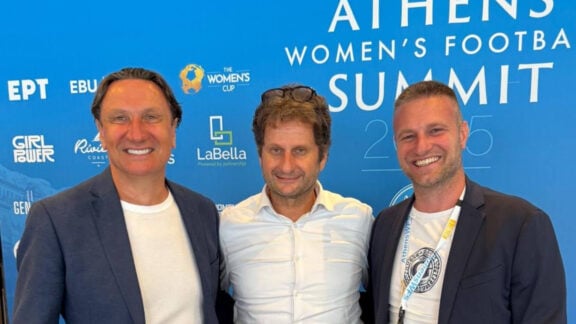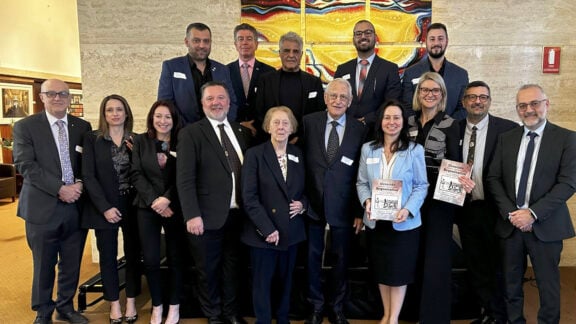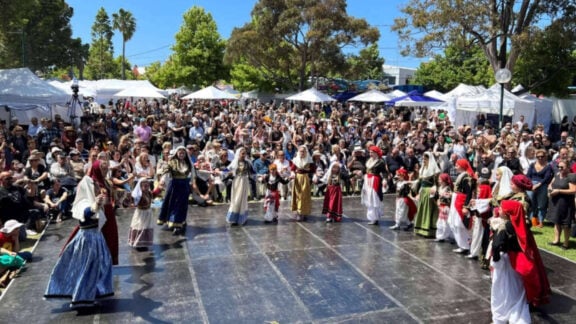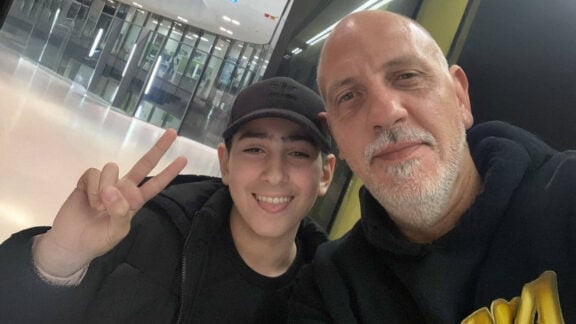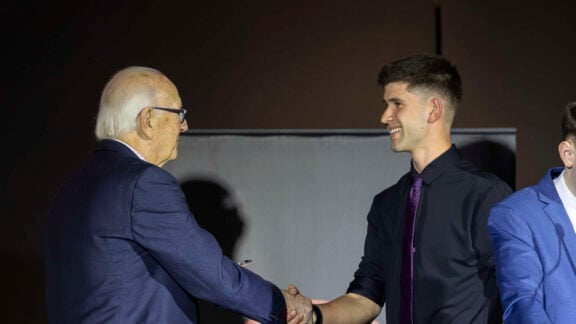The Modern Greek Teachers Association of Victoria (MGTAV) held their annual conference ‘The Greek Language in Australia – Sustainability, Maintenance and Diversity’ last week with an unprecedented number of participants and supporters.
According to Nikos Zarkadas, MGTAV Liaison Officer, the 2012 conference has been considered a resounding success due to its more than 70 participants – an impressive number for a conference run by a relatively small association that represents only one language.
Every year, the conference emphasizes the use of new methodologies in language teaching, so that Greek language schools in Australia can be on the forefront of pedagogical technique. In keeping with that aim, the main theme of this year’s conference was the more recent use of e-learning – that is, teaching using technology and the internet. In this way, new teachers of the Greek language in Australia can be exposed to the latest educational trends.
Most of the conference itself was held in Greek, and all communications sent out by MGTAV were also in the Greek language. Given, however, the association’s relationship with the Victorian government – who generously provides subsidization – there is a need for the MGTAV to communicate with the wider Australian community in English. Thus, the papers given by guest speakers at the conference were in English, as well as much of the information provided on their website (www.mgtav.org.au) about the 2012 conference.
Many Australian educational bodies were represented at the conference, including the Greek Consulate Education Service, the Victorian Curriculum and Assessment Authority (VCAA) and the Victorian School of Languages (VSL), that oversees general foreign language learning in Victoria. Also, many varieties of Greek language school were represented, including bilingual day schools, after school language teaching and government schools.
One of the other topics raised, particularly by the Victorian Government-based bodies, was the potential for increased funding to Greek language schools. There was also some discussion of the upcoming changes to the national curriculum, and the constant place of the Greek language within it. At this stage, it is too early to make conclusions on these topics, but it is clear that these will be ongoing topics of discussion in Greek language teaching in Australia.
For now, however, the new horizons in Greek language teaching in Australia are focused quite firmly on the use of e-learning, particularly given the current popularity of technology among youth. Nikos Zarkadas told Neos Kosmos that the use of new technology in the classroom is something that gives educators a new scope for teaching, allowing them to approach Greek language education in completely new ways.
He is quick to mention, however, that it is not the intention of the MGTAV to replace invaluable classroom teaching with online learning, which he insists is merely “an additional tool to teacher language”.
“Nothing replaces the teacher and face to face teaching,” he said.
Advertisement
Conference focuses on technology in Greek language teaching
The Modern Greek Teachers Association of Victoria (MGTAV) held their annual conference ‘The Greek Language in Australia – Sustainability, Maintenance and Diversity’ last week
